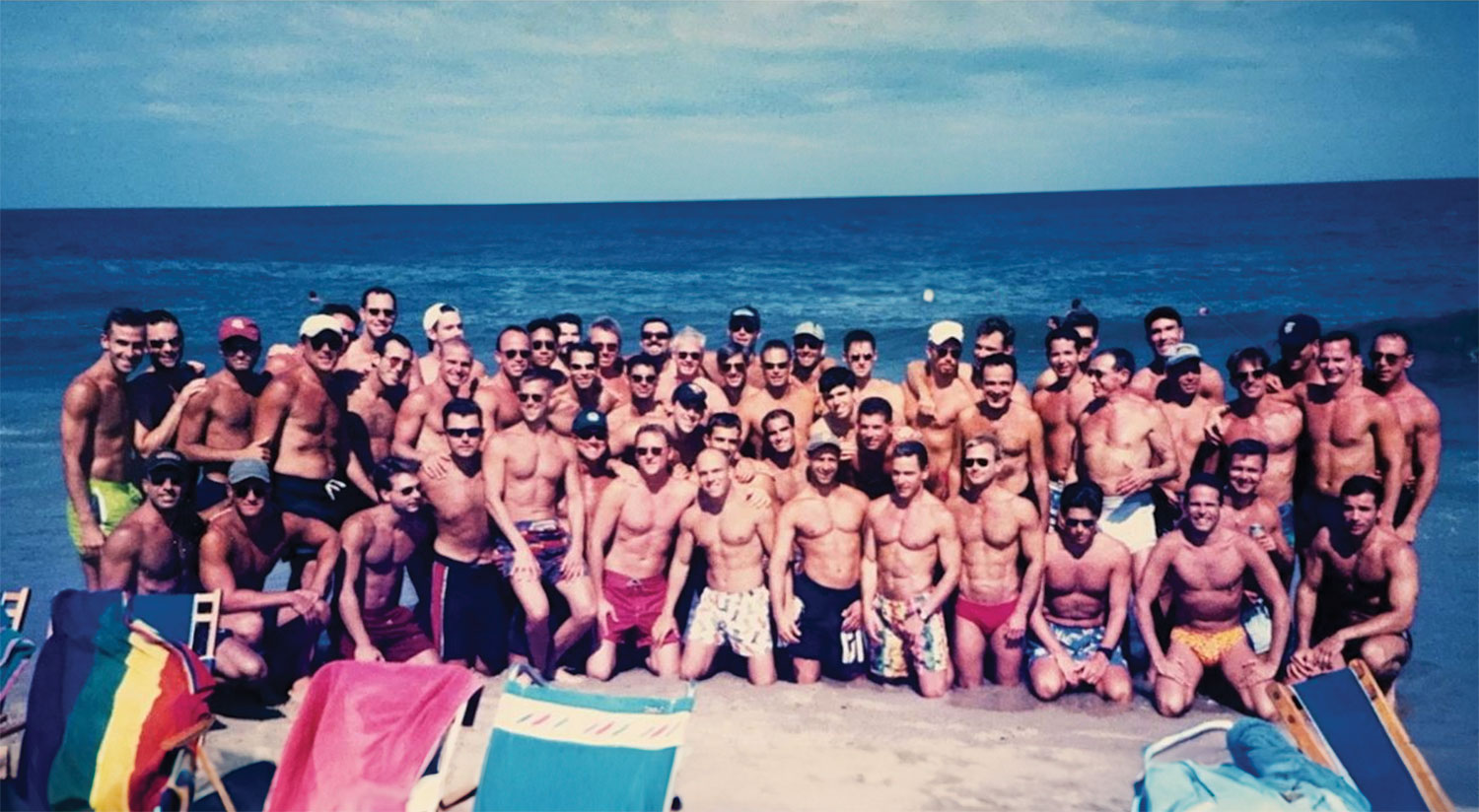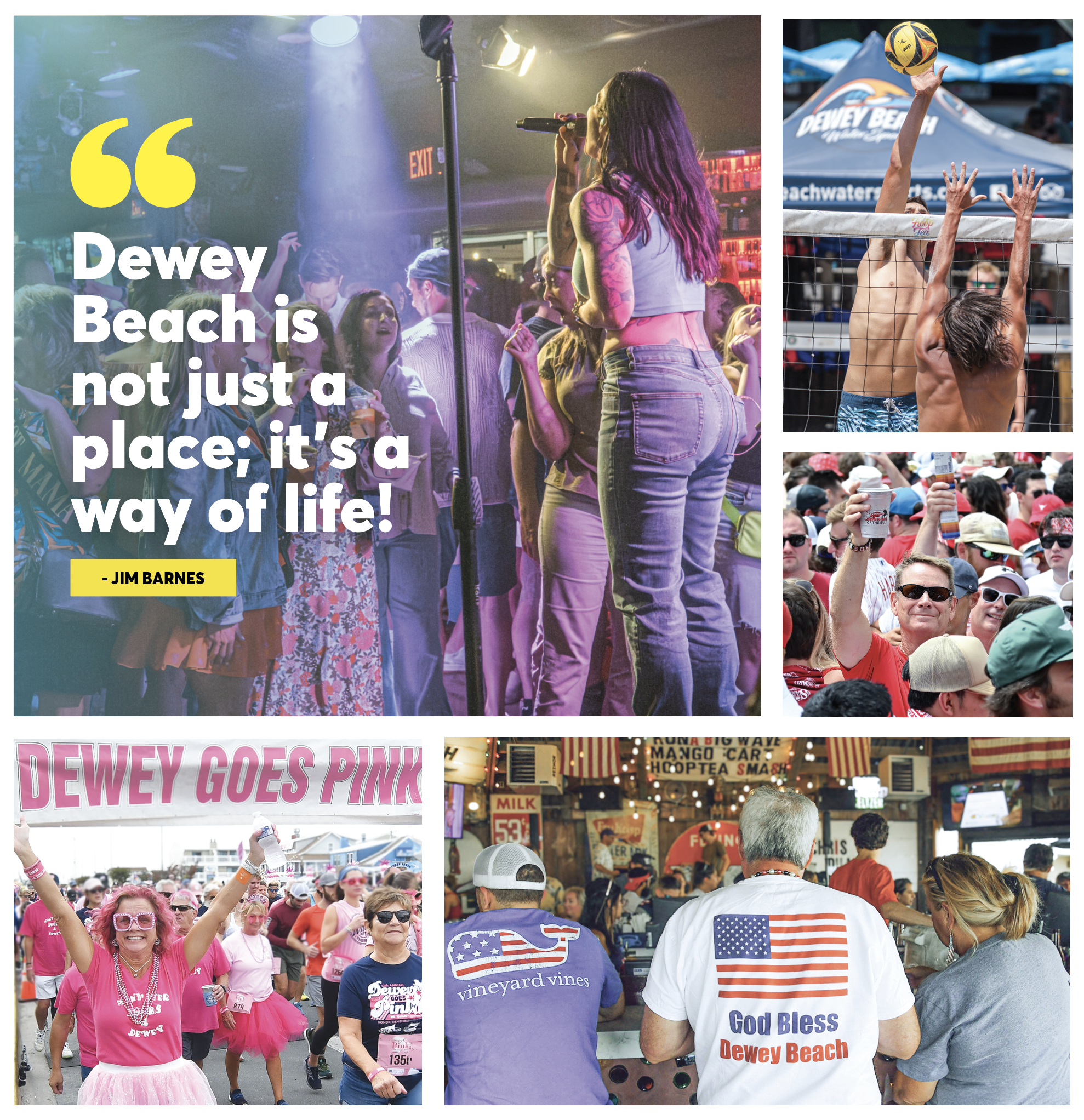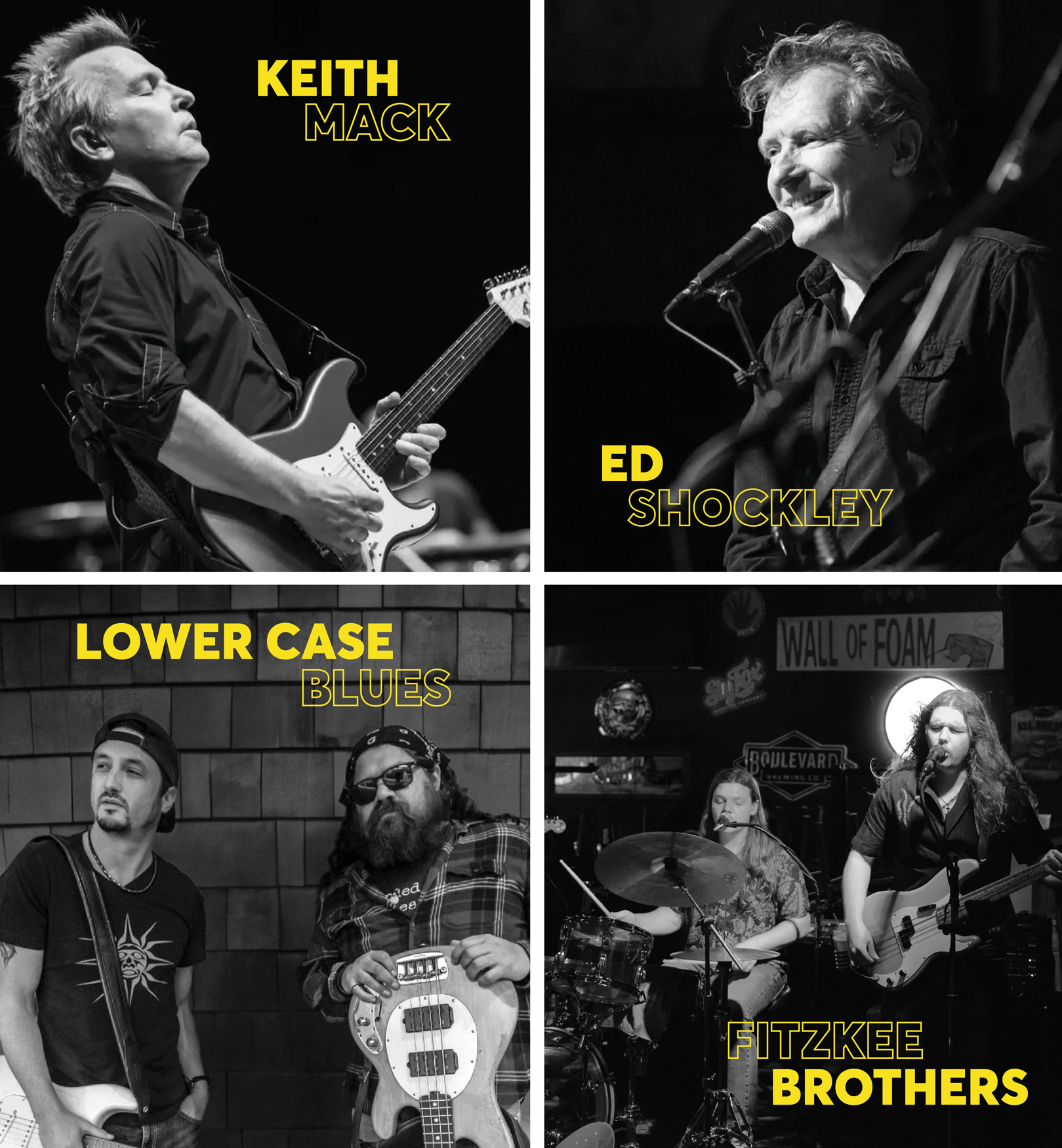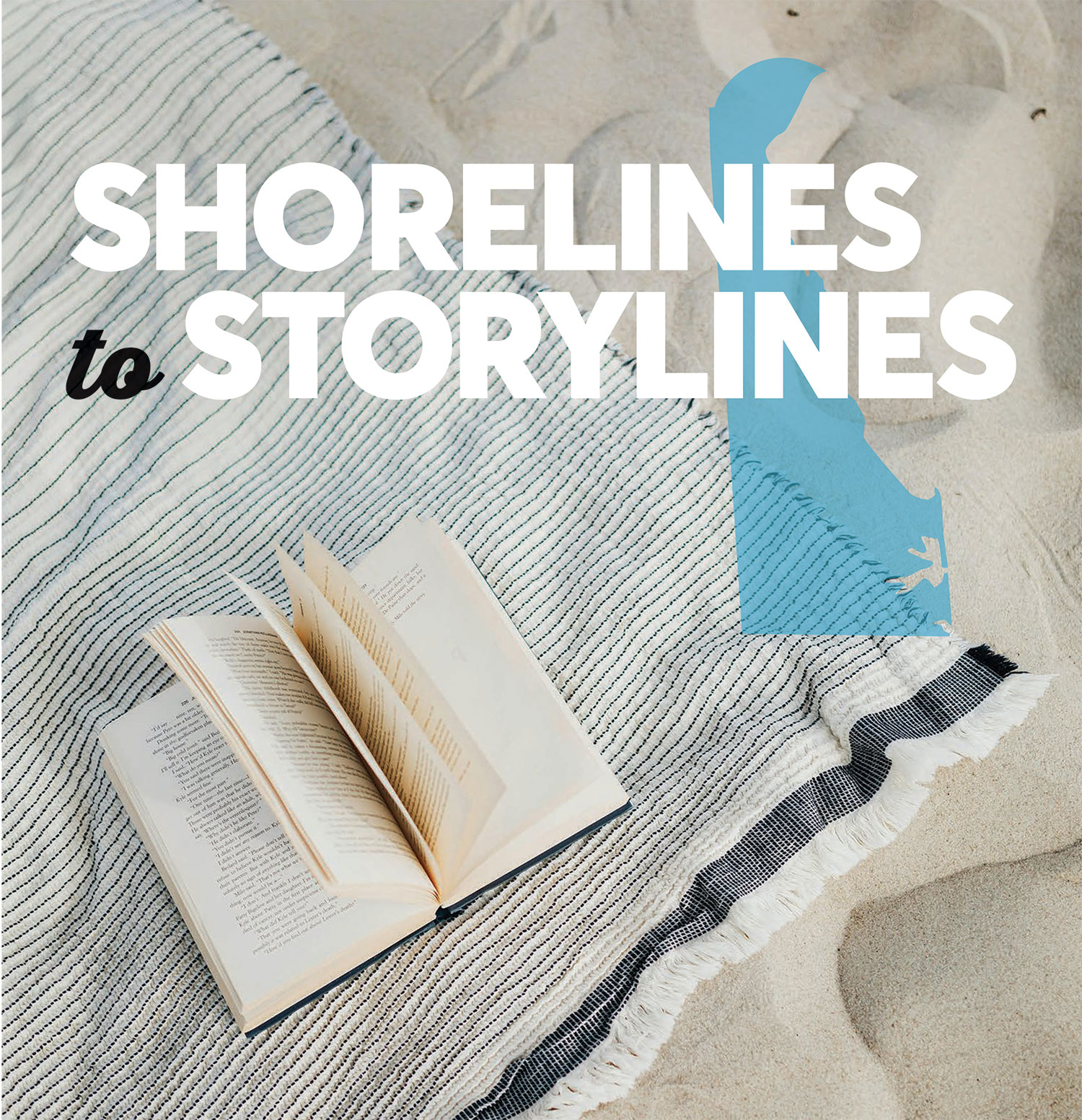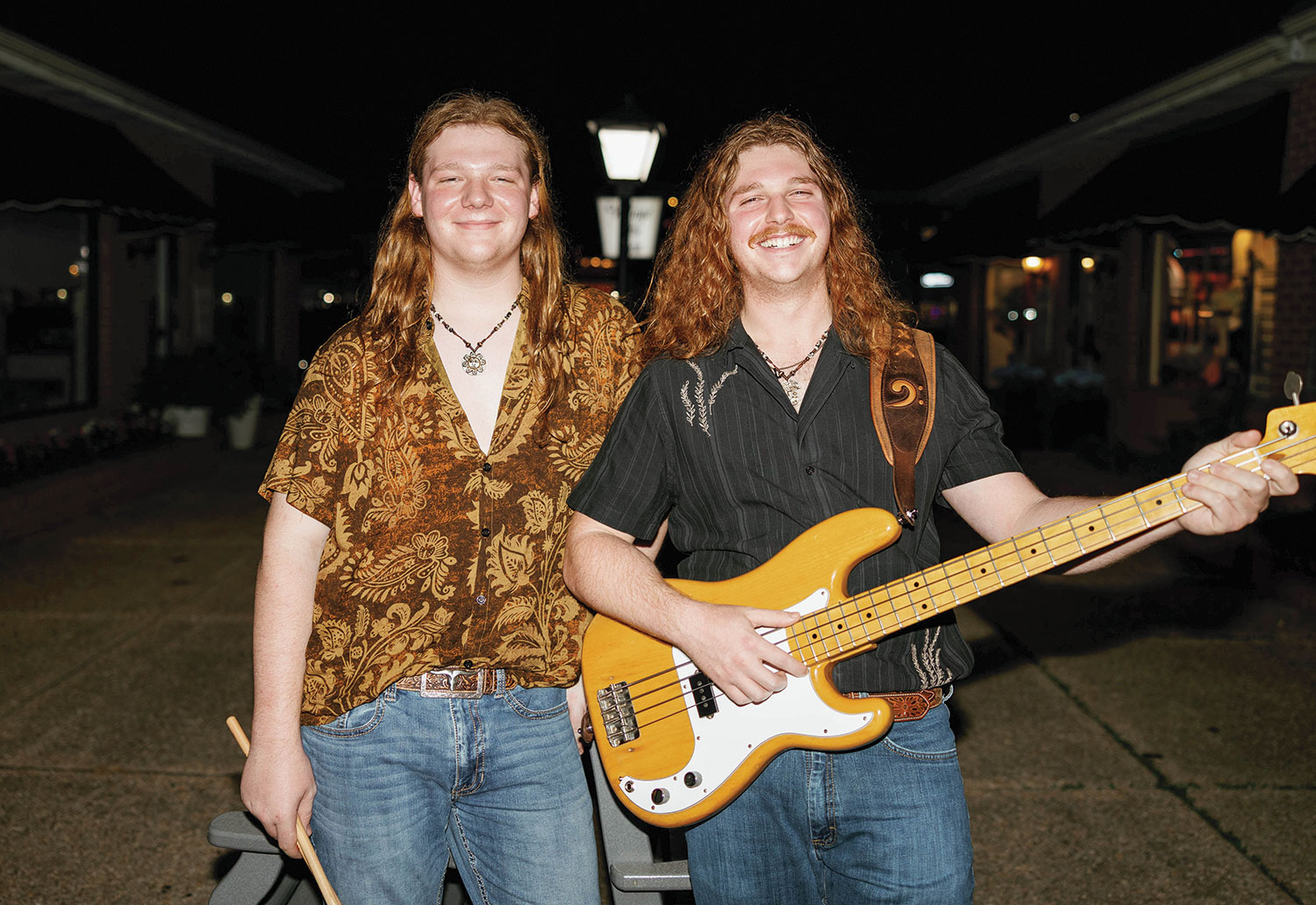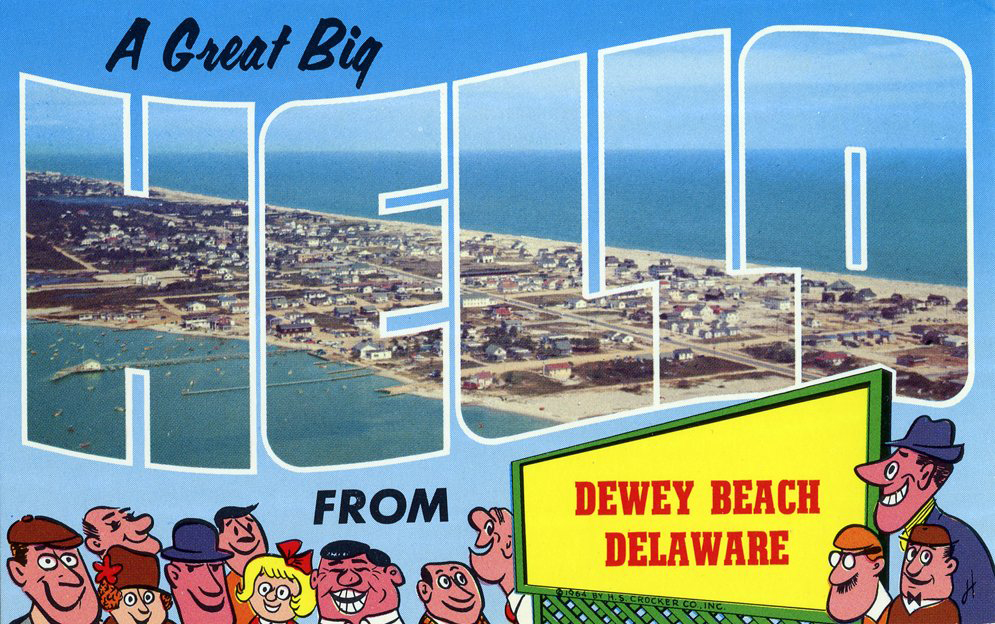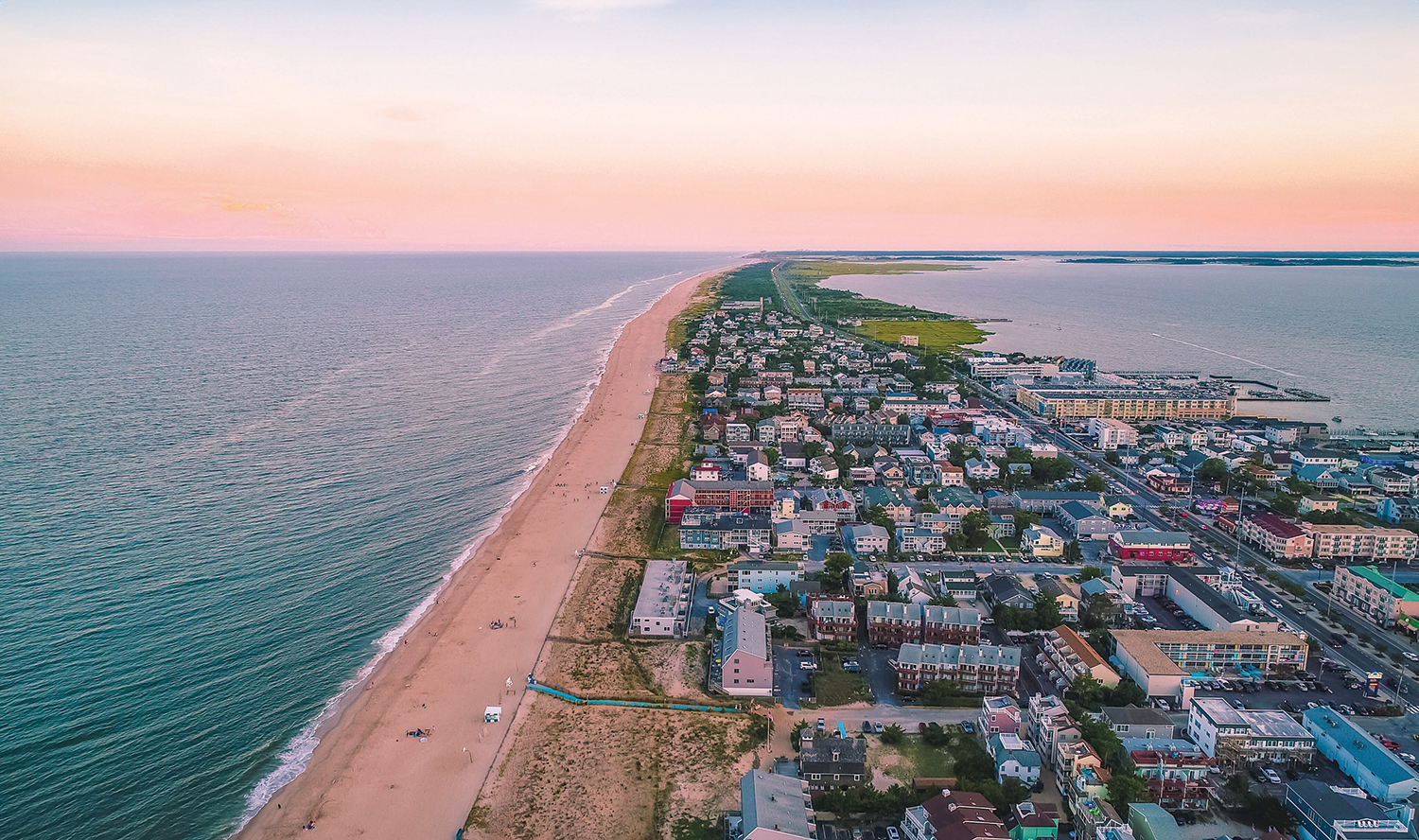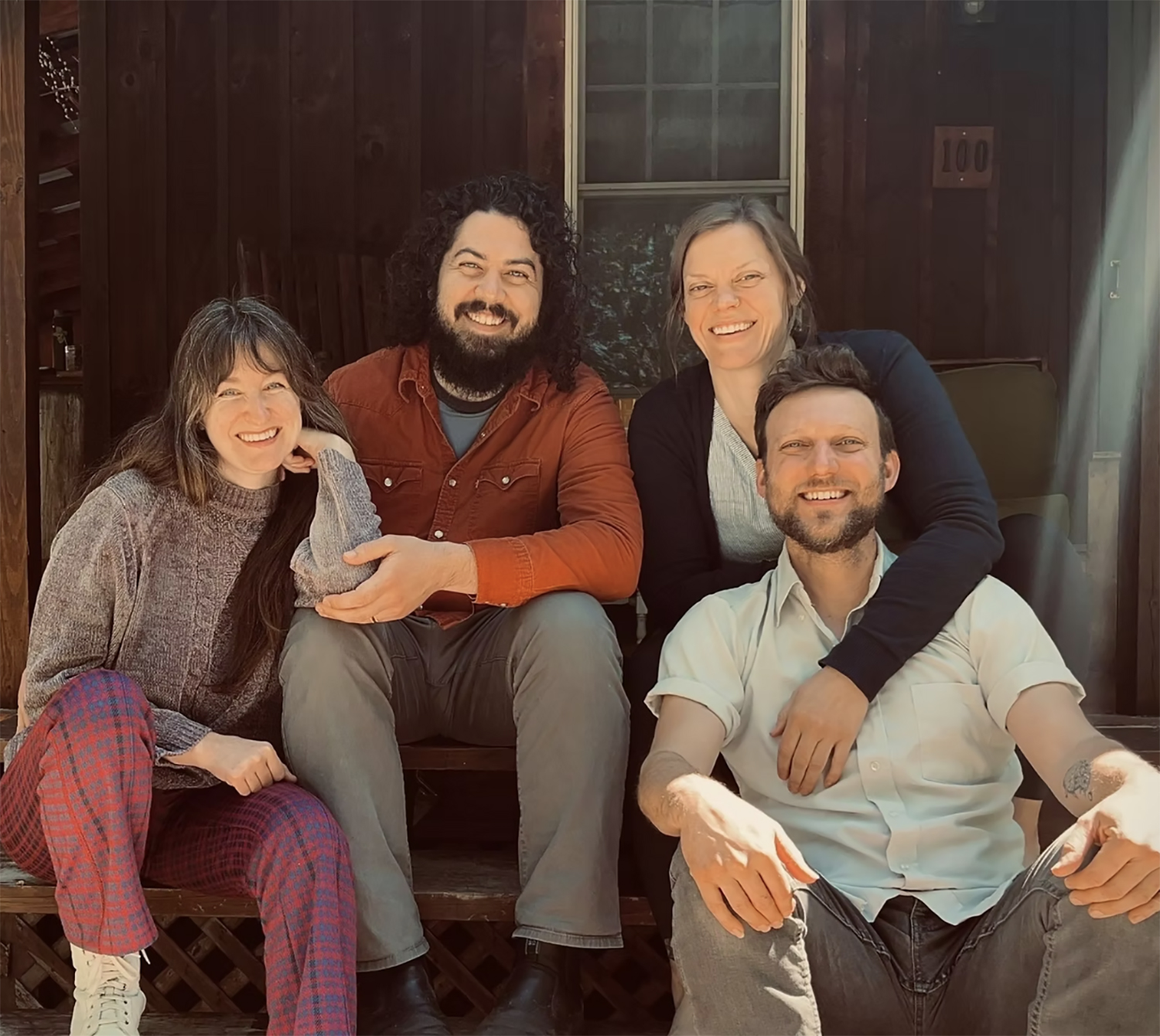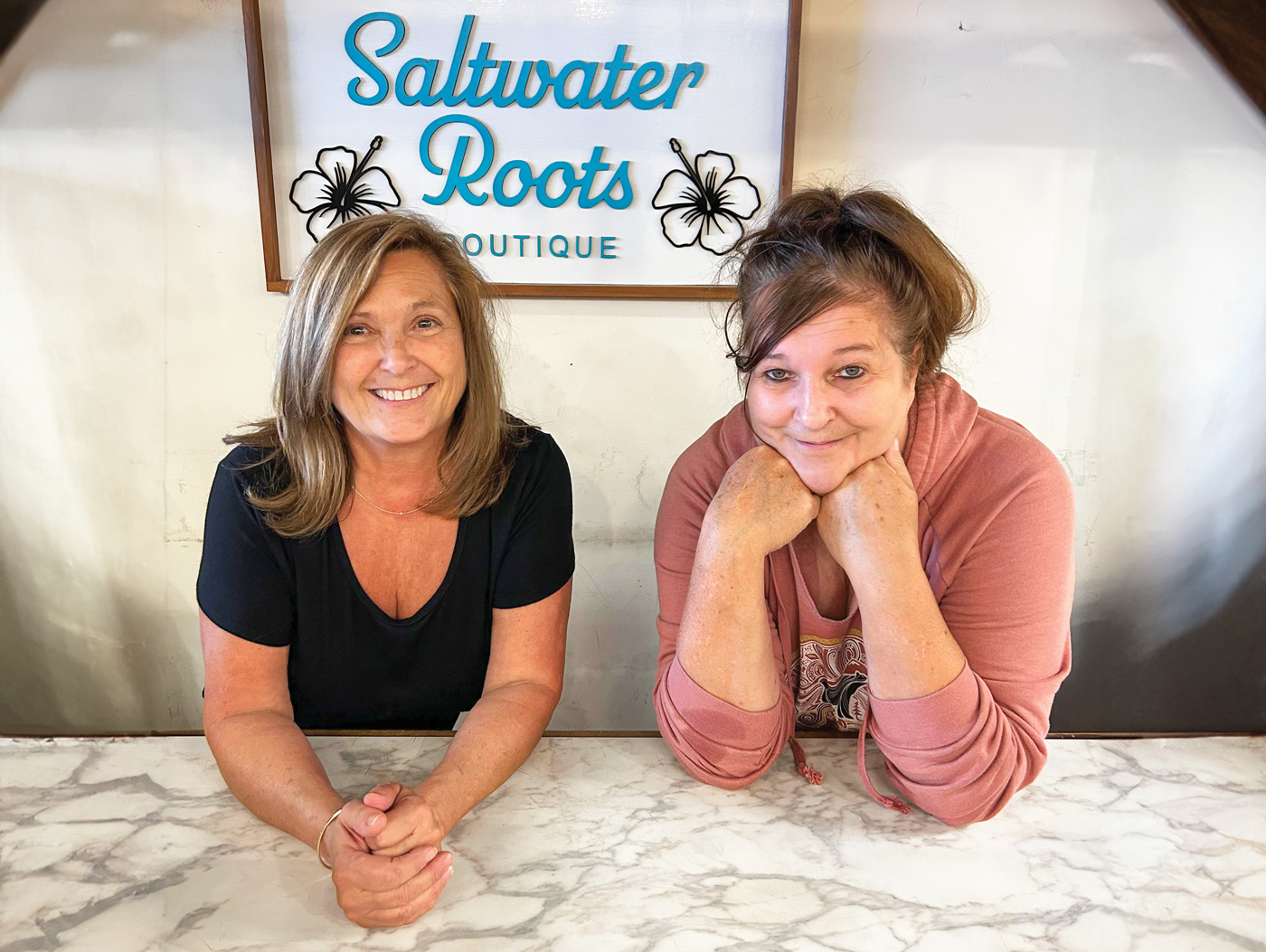Rehoboth Beach wasn’t always the vibrant queer haven it is today. Its transformation was decades in the making – fueled by fearless individuals and hard-won progress to get here.
POWER AND PROGRESS
It started with dance floors and defiance. On Memorial Day weekend 1980, Glen Thompson opened Renegade Disco & Lounge – the first openly gay-owned bar in Delaware. A year later, Victor Pisapia and Joyce Felton turned a Craftsman-style house on Baltimore Avenue into the Blue Moon, soon to become the epicenter of Rehoboth’s queer community.
“We didn’t realize the shitstorm that was going to ensue,” Felton later said. But soon, the Moon’s gravitational pull transformed the block. New queer- and progressive-owned spots popped up: The Front Page hosted “Editorial Nights,” Tijuana Grill poured mega margaritas, and Baltimore Commons served flowers, antiques, and attitude. Over on Rehoboth Avenue, Chez la Mer and Sydney’s Side Street Café added French flair and jazz to the mix.
As the town’s dining and nightlife scene moved beyond the traditional fried fare, a newspaper captured the shift: “Gays Have Found a Refuge in Resort Town Atmosphere.” But with visibility came vitriol.
“It was not unusual,” CAMP Rehoboth co-founder Murray Archibald remembered, “for cars to drive up and down Baltimore Avenue and throw things at the Moon or to scream things to people on the street.” There was pushback – on the street, behind closed doors, and at the tables where rules got rewritten. “We had to play by every single rule – and sometimes those rules changed,” Felton recalled.
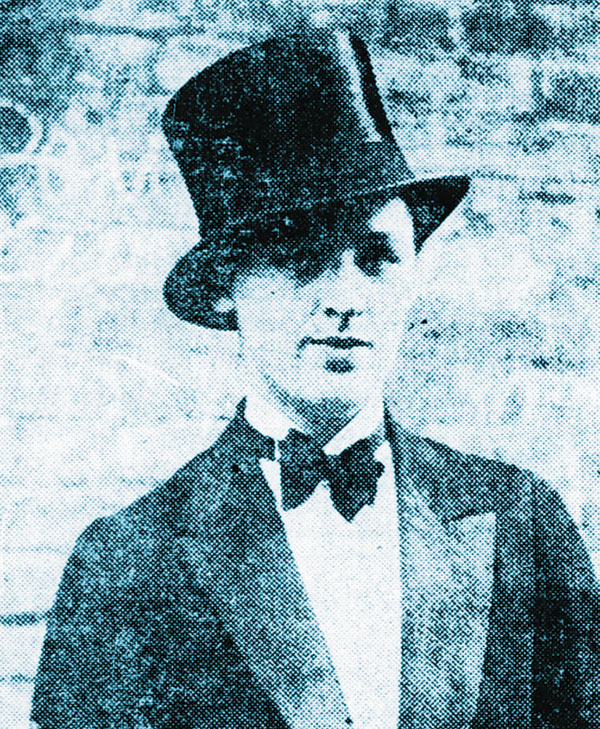
QUEER BEFORE THE MOON
The 1980s might have been Rehoboth’s coming out party, but queerness had long been part of the town’s DNA.
In the 1920s and ’30s, DuPont heiress Louisa D’Andelot Carpenter hosted well-known artists and celebrities at her family’s beach compound. “In Louisa’s time, we vaguely knew that she was gay,” said local historian Evelyn Thoroughgood, “but nobody talked about it.”
In 1954, Ross Alexander opened Joss, the first acknowledged gay-owned business in Rehoboth. By the 1970s, Joss had relocated to Baltimore Avenue, helping ignite the area’s commercial rebirth.
During the ’60s and ’70s, queer life was discreet. At the Pink Pony, a mixed Boardwalk bar with smoked-glass windows, locals and weekenders mingled. One night, Thoroughgood visited to see her husband behind the bar and had her “first encounter with gay social life.”
The original Pink Pony was swept away in the Great Nor’easter of ’62. A new generation found refuge in a tuck-away bar on Bethany Beach. Jimmy Short, the last man jailed under Delaware’s sodomy statute, convinced Nomad Village owners Randall and Betty Godwin to queer one side of their venue for lesbians and gay men. It quickly became the place to meet up.
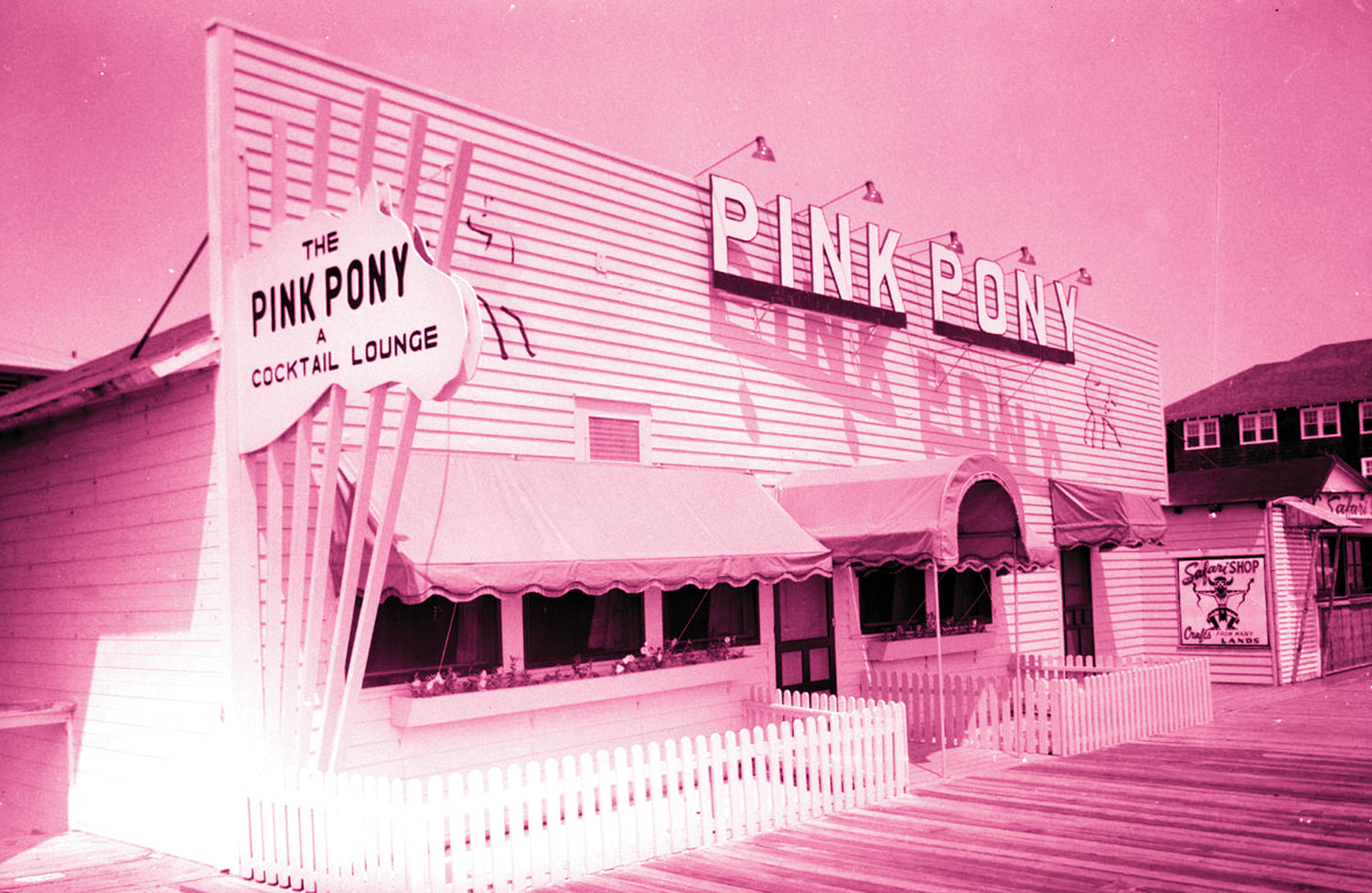
In the summer of ’64, homosexual invisibility was shattered when a Rehoboth resident informed his fellow state highway commissioners, “They congregate like bees in a swarm.” A newspaper headlined, “Rehoboth Fears Harm to Resort Image.”
Still, LGBTQ+ people quietly claimed space. At their Laurel Street cottage, Muriel Crawford and Anyda Marchant co-founded Naiad Press, publishing dozens of groundbreaking lesbian novels – including The Latecomer, written by Marchant under a pseudonym. At the Back Porch, Chef Pisapia brought his mother’s motto to life: “Food has a lot of power.”
Then, on July 4, 1976, change hit the dance floor. The Boathouse opened just outside town. With bay water underfoot and cattails in the windows, it became the area’s first true gay club.
THE EIGHTIES GET LOUD
As Rehoboth’s queer and progressive population grew, so did resistance. Attorney Gene Lawson remembered, “They would do whatever they could to keep gays out; they would not treat you very nice – but they would take your money.”
In the late ’80s, “Keep Rehoboth a Family Town” bumper stickers were everywhere. Police targeted Poodle Beach, searching gay beachgoers for alcohol. In July 1991, one man was arrested for removing his swimsuit underwater. Onlookers protested. The “Poodle Beach Riot” was born.
Several people were arrested, including one for loitering. “What else are you supposed to do at the beach?” he asked an officer. Lifeguards weren’t always allies, either – one stand once displayed a sign that read “No homos,” alongside a crossed-out AIDS symbol.
Despite it all, joy persisted. Drag Volleyball on Labor Day became a beloved tradition of camp and protest.
That same summer, Letters magazine and CAMP Rehoboth were born. “Our goal,” wrote editor Jim Bahr, “was not to imitate Provincetown, but to promote Rehoboth Beach as a resort welcoming all people – all kinds of families.”
RISE AND FALL (AND RISE AGAIN)
As the ’90s began, Pisapia, Felton, and Lawson opened The Strand – a hybrid cabaret, diner, and state-of-the-art nightclub. To many, it was a cultural renaissance. To others, it was a “homosexual tsunami.”
Permits were delayed. Codes nitpicked. Ordinances challenged. Eventually, The Strand was drowned by a thousand bureaucratic cuts. But the backlash had a silver lining. “It brought the business community together, the gay community together, and woke up City Hall,” said Lawson. CAMP and Letters expanded in its wake.
In 2001, Renegade and the Blue Moon celebrated 20 years. “We’ve watched the rise and fall of the now legendary Strand,” said Steve Elkins. “We’ve danced and laughed and cried and buried friends and made new ones.”
The following year, Mark Aguirre became the first openly gay and first Latino elected official in Sussex County.
By 2003, Renegade closed its doors. “The 25-year-old… was now 45 or 50,” said its manager. “He didn’t want to stand and drink out of a plastic cup… [and] we weren’t the only place people could go to feel comfortable anymore.” Felton sold the Blue Moon five years later, saying, “We are out, visible, and celebratory.”
PRIDE AND PROGRESS
Today, Rehoboth is “both what the old guard fought to preserve and what the gay community wanted to create,” said a longtime CAMP member. It is “a mix of small-town tradition and beach-town tolerance, a place where hand-holding men in sandals coexist with baby strollers and kiddie rides,” where rainbow flags fly alongside American flags.
Rising real estate prices have shifted the demographic toward older, wealthier queer residents. Many new visitors don’t know what it took to get here – how joy, protest, and resistance built this refuge.
“As we look to the future,” says CAMP Rehoboth’s Executive Director, “ours is a mission of love and compassion for all.” Dr. Kim Leisey emphasizes, “We will continue to serve all sexual orientations and gender identities and be a place where people speak without fear, exist without shame, and dream without limitation.”
So, what if there had been no resistance? “If there had been no opposition,” Archibald once mused, “would we exist at all?” He answered in his usual low-key manner: “Without challenge, there is no reason to push.”
Today, the same boardwalk that once saw harassment now hosts parades. The same blocks where bottles were once tossed at queer businesses are now lined with rainbow flags. What began as a reaction against change instead fueled a powerful constituency that reshaped Rehoboth – and continues to do so.
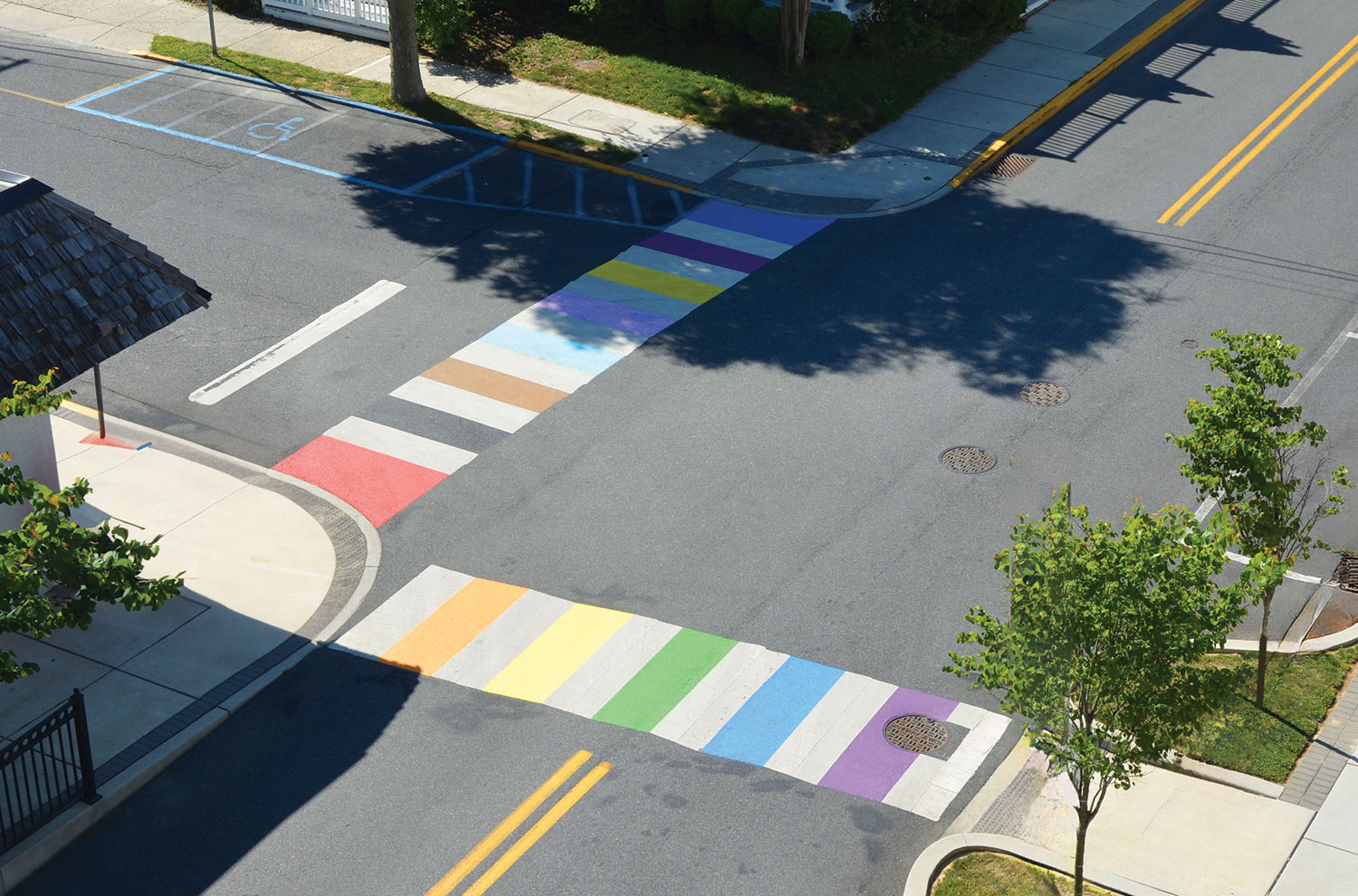
CELEBRATE 2025
Milton Pride takes place on Saturday, June 14 featuring Goldstar, Magnolia Applebottom, and Mama’s Black Sheep. Learn more at: miltontheatre.com/pride.
Rehoboth Beach Pride takes place Saturday, July 19. Rehoboth Beach Pride is hosted by Roxy Overbrooke and will feature performances by: Goldstar, Ivy Blu Austin, Kadet Kelley, and JC Pizzazz. Info at sussexpride.org/rehobothbeach.
AUTHOR SPOTLIGHT
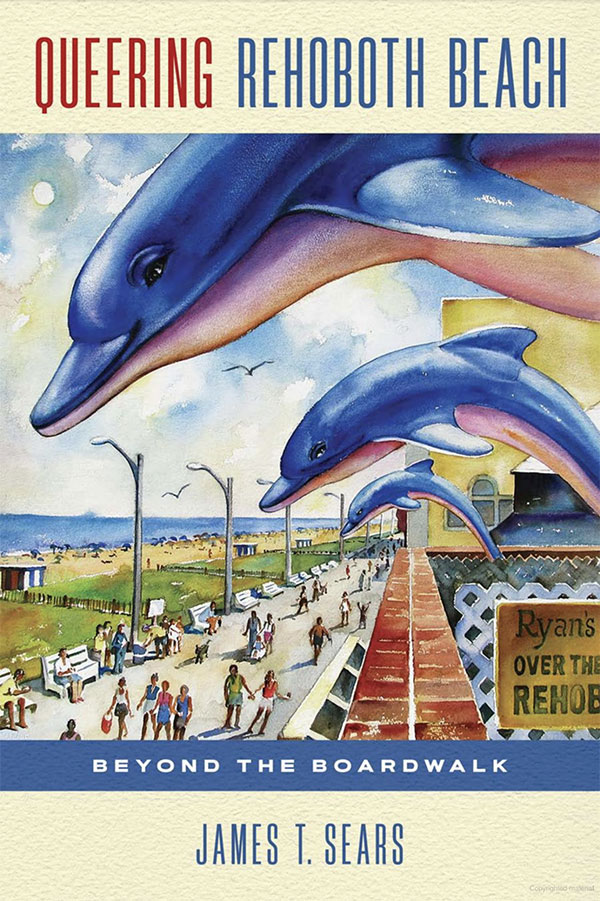
James T. Sears, PhD has authored several books on queer history, including his best seller, “Queering Rehoboth Beach: Beyond the Boardwalk.” The book can be purchased at Browseabout Books in Rehoboth Beach or on Amazon. His forthcoming gothic novel, “The Circle’s Edge,” set in nineteenth-century Wales, will be published next year.

